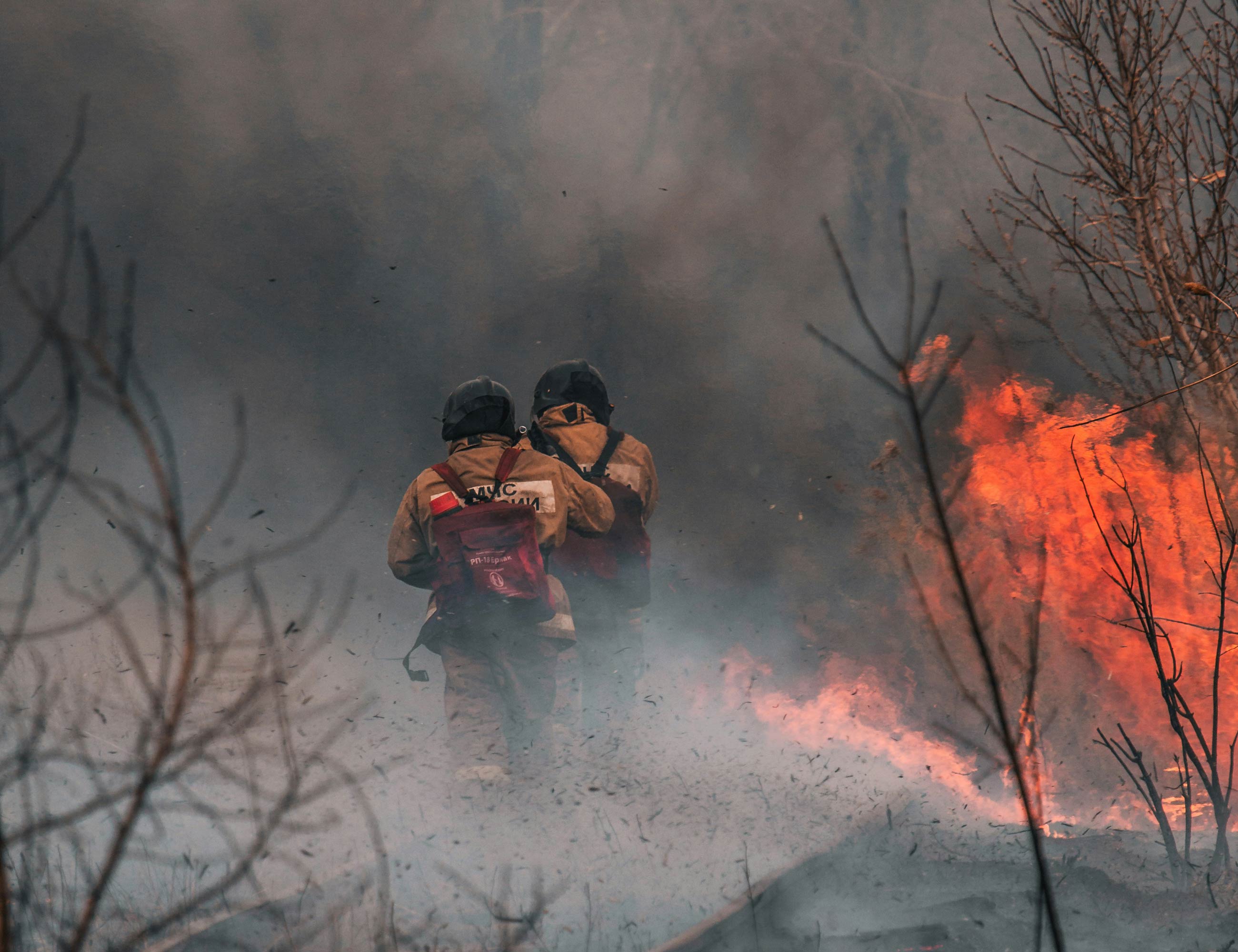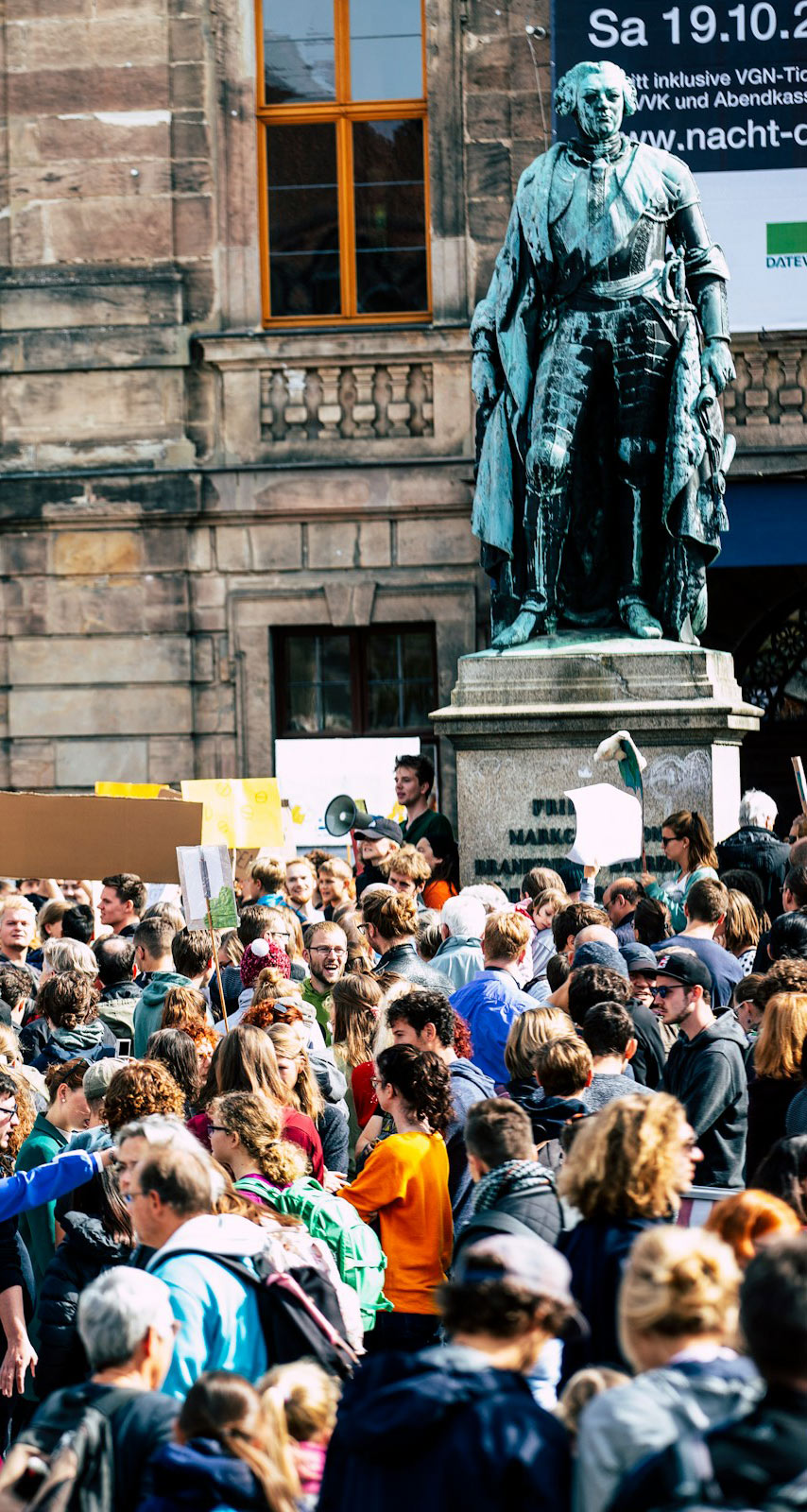
Climate challenges in 2024:
Growing pressure



At first glance, COP28 in Dubai in November 2023 was a success: For the first time in 30 years of climate conferences, the final agreement includes the words “transition away from fossil fuels,” acknowledging them as the primary driver of climate change. Almost every country in the world has signed the final agreement, and the fact that a conference in an oil-dependent country brought about this result is surprising.
However, its non-binding nature leaves crucial decisions in the hands of national leaders. As in many other instances, the bold language of a global document often falls short in the implementation phase as it is highly dependent on how it translates into actionable policies and financing. Despite the historic significance of the language used in the final COP28 declaration, the effectiveness of such a declaration relies on individual nations’ commitment and proactive measures. The international community, including local and regional governments, stakeholders, and citizens, are under higher pressure to transform the aspirations into tangible actions to achieve a sustainable and resilient global future.
The Dubai agreement failed on many other topics and still includes loopholes for the production and consumption of coal, oil, and gas to continue. A new fund paying for “loss and damage” from climate change is promising, but not enough – as ever, financial commitments are lagging. Since its launch, it has raised only $429 million, a figure almost ten times lower than the estimated annual damages in developing countries, which is a staggering $400 billion. This disparity highlights the inadequacy and lack of concrete commitments from the international community to bolster the funds to meet the urgent needs of the most affected. The lack of funding continues to be one of the major challenges in achieving the fund’s main goal.
COP28 also marked the first global stocktake, which made it clear how countries must accelerate their climate action to meet the goals of the Paris Agreement. International pledges to triple renewables, act on biodiversity, and reduce company emissions are coming in. So far, 100 countries out of 200 member countries have pledged to triple the world’s renewable energies by 2030 and to double efficiency rates by the same time.
Now is the time for action. With the El Niño cycle peaking, we are in for another record-breaking summer, which might be a preview of the 2030s. Renewables, consumer behaviour, supply chain decarbonisation, net-zero strategies and a growing climate economy are the antidotes. They help to shift climate adaptation from strategy to action. And the example of Germany making it mandatory by law to deal with the consequences of climate change shows another pathway of implementation.
The Biden Administration decided on 26 January 2024 to pause new liquified natural gas (LNG) exports, taking an essential step toward limiting fossil fuel production and accelerating the transition to a clean energy economy. Biden emphasised that this pause “sees the climate crisis for what it is: the existential threat of our time.”
With elections coming up in the EU and in many countries, including the US, the UK and Mexico, voters can take their hope for climate change to the ballot.
At COP29 in Azerbaijan, the world will meet again to evaluate progress and hopefully inspire even more climate action – we don’t have a choice anymore, and we don’t have time either.
SPOTLIGHT ON
The IPCC Climate Change and Cities report to be ready by 2027
The Intergovernmental Panel on Climate Change (IPCC) agreed on a Programme of Work on 20 January 2024, including a Special Report on Climate Change and Cities to be ready in 2027. The first meeting to discuss the draft outline of the report is scheduled for April 2024 in Riga (Latvia), with the participation of experts nominated by member governments and observer organisations.
Innovative4Cities Conference in Montreal
To inform the IPCC Seventh Assessment Report Cycle (AR7) and the Special Report on Climate Change and Cities, the Innovative4Cities Conference (I4C2024) will be held in Montreal (Canada) from 10 to 12 September 2024. Convened by the Global Covenant of Mayors for Climate and Energy (GCoM) and UN-Habitat, it will gather city leaders, academia, civil society, and industry.
Special Issue on City-Led Research and Innovation for Climate Action
The Journal for City Climate Policy and Economy (JCCPE) announced a special issue titled “City Led Research and Innovation for Climate Action” in August 2024. The call for contributions invites city policymakers, decision-makers, elected and non-elected representatives, and city networks to share insights on challenges faced, current research and innovation strategies, priority needs for climate action at the city scale, and opportunities to scale up existing successes. A second issue on the same topic, from the perspective of urban scholars, city-focused climate scientists, geographers, and urban planning academics, will be published in August 2025. This edition aims to address challenges identified by cities and city networks.
 This publication was produced with the financial support of the European Union. Its contents are the sole responsibility of UCLG and do not necessarily reflect the views of the European Union.
This publication was produced with the financial support of the European Union. Its contents are the sole responsibility of UCLG and do not necessarily reflect the views of the European Union.